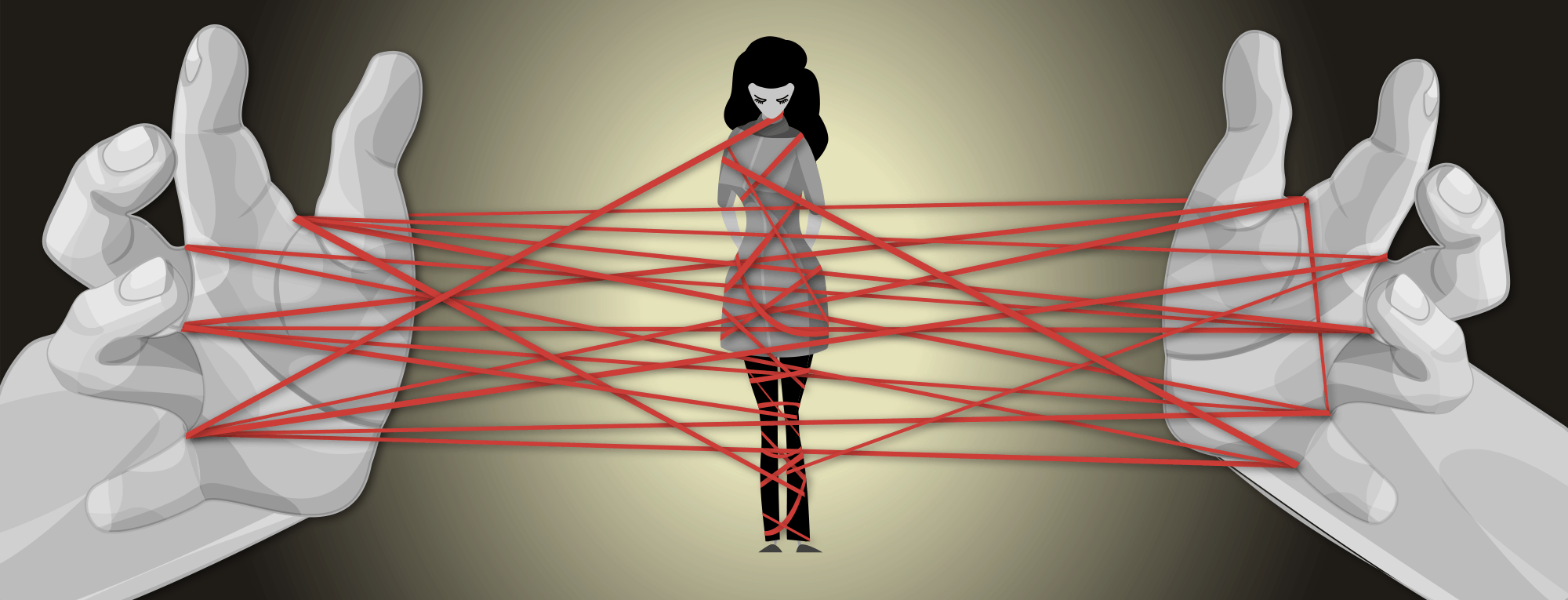In 2016, the number of people estimated to be suffering from mental health issues like depression and anxiety amounted to roughly 1.1 billion. Since then, numbers have likely continued to rise. Moreover, studies have also shown women especially on average are a) more likely to suffer from mental health issues, and b) less likely to talk about them. The taboo in Pakistan surrounding depression and anxiety disorders only serve to aggravate the individuals suffering even more. For the women who cannot seek out full time therapy, we’ve enlisted the help of a trained therapist. You sent us in your questions – here are the answers!

“After years of struggle, I married the person I loved and moved to a new country. After 2 years of marriage, I am realising that I have married a vulnerable narcissist. He needs to make me feel worse to make himself feel better all the time – may it be attacking my self-esteem, name-calling or constant complaining. Calling quits is not a realistic option for me. What do I do? How do I convince my partner that we need marriage counselling or that he needs help? It’s affecting my mental health drastically. I really need help!”

Shahrukh’s Response:
Dear Anon,
Relationships in themselves can be challenging in so many ways, and adding narcissism into the mix can make things even more difficult. I know that it can be daunting to recognise that one’s partner is a narcissist, or has narcissistic tendencies. However, there are things you can do on your end to make the relationship easier for you. Let’s dive right in!
Understanding Narcissism
Narcissism/Narcissistic Personality Disorder (NPD) is defined as a disorder where a person has an inflated sense of self, and believes that they are superior to others. However, behind this façade is a great deal of fragility when it comes to self-esteem or self-worth. I was once told by one of my instructors that “narcissists have some of the deepest wounds” and that really stuck with me throughout the years. People who display narcissistic traits would have gone through a great deal of early childhood trauma, usually in the form of unmet emotional needs. As a way to cope, children would learn to use their layer of confidence to shield themselves from the dangers that the outside world might pose to their internal world, as well as satiate their need to feel superior to others.
Narcissism is also a spectrum. To a certain degree, each one of us would fall somewhere on the spectrum, which is completely natural as humans do essentially exist to look out for their own needs, and their survival, but most of us would fall on the lower end of the spectrum as we begin to integrate ourselves into the external world and relate to others. That being said, it is essential to recognise when one falls on the further end of the spectrum, and when it reaches the point of toxicity. Some of the more common traits found in narcissists are:
- Grandiosity or inflated sense of self
- Lack of empathy
- Manipulative behaviours
- Constantly seeking attention or validation
- Strong sense of entitlement
- Ignoring the needs of others and focusing solely on the needs of the self
- Inability or defensiveness towards criticism

How To Deal With A Narcissistic Partner
In dealing with a narcissist, it’s important to note that you will not be able to fully control how they behave or act, what you can do is focus on the things you can for yourself to keep yourself safe. Firstly, do your best to observe their behaviours and where they might fall on the spectrum of narcissism. Are they unable to form attachments? Do they lack empathy? Do you feel that they are highly manipulative?
- Communicate: the first step is to communicate how you’re feeling. Try to speak in “I” statements, making it about how you feel rather than their actions or feelings. You might also take this opportunity to bring up the idea of marriage counselling, saying that you feel that it might help strengthen your relationship. See how they respond to this.
- Recognise that when they attack you, they are usually attacking themselves: when narcissists get defensive, they are generally projecting their own feelings of inadequacy and self-hatred onto you. This would manifest, as you said, in the form of name-calling, complaining or targeting your self-esteem.
- It’s not you, it’s them: one of the things that are central when dealing with any kind of narcissist is taking care of yourself, and being able to see that what they’re doing is all a façade, and it’s a way for them to protect themselves against feelings of severe self-hatred and inadequacy. It’s easy to fall into the trap of a narcissist, where they find little ways to make you feel smaller, and in those cases, remind yourself of their patterns, while simultaneously countering any of their attempts at belittling you by fostering a sense of compassion towards the self. Remind yourself that you are worthy, and that their words and manipulation have no power over you. Take your power back.
- Set boundaries: whether its emotional (internal) or verbal (external), it would be beneficial to set some boundaries with your partner in regards to how they speak to you or address you. If they continue to do so, allow yourself to set the intention that you will not allow their words to impact you the way they do now.
- Seek out support: when it comes to difficult circumstances, I would really recommend seeking out some support. Whether it’s friends, family or a therapist, seek out spaces and individuals that heal you rather than drain or harm you.
Anon, having a narcissist partner can be challenging, but it’s not to say that you and your husband can’t move past it. One of the things that I will emphasise on is being as open and authentic in your relationship as you possibly can. Take it one step at a time. Whatever happens, remember that you are in control of yourself, you are the one thing in life that you can control. I hope that you were able to find the answers that you were looking for in this article. I wish you all the best on your journey towards healing. Take care and stay in your power!

The above article is written by Shahrukh Shahbaz Malik who is trained in humanistic integrative counselling at CPDD in the UK and currently has her own private practice in Karachi. The views expressed in this article are those of one expert. They do not necessarily represent the views of Mashion, nor do they represent the complete picture of the topic at hand. This article is for informational purposes only and is not a substitute for medical diagnosis or treatment.








What do you think?
You must be logged in to post a comment.